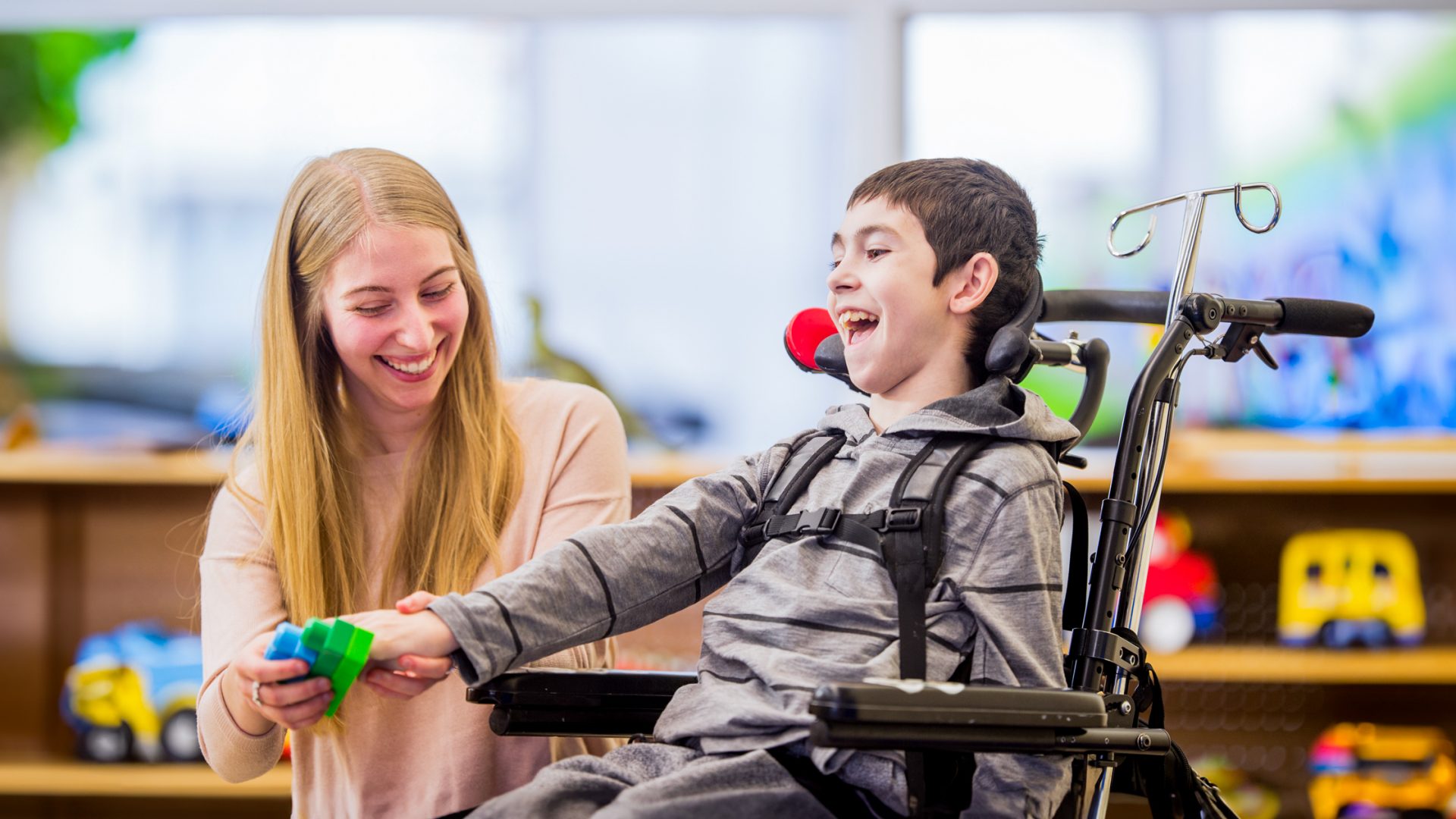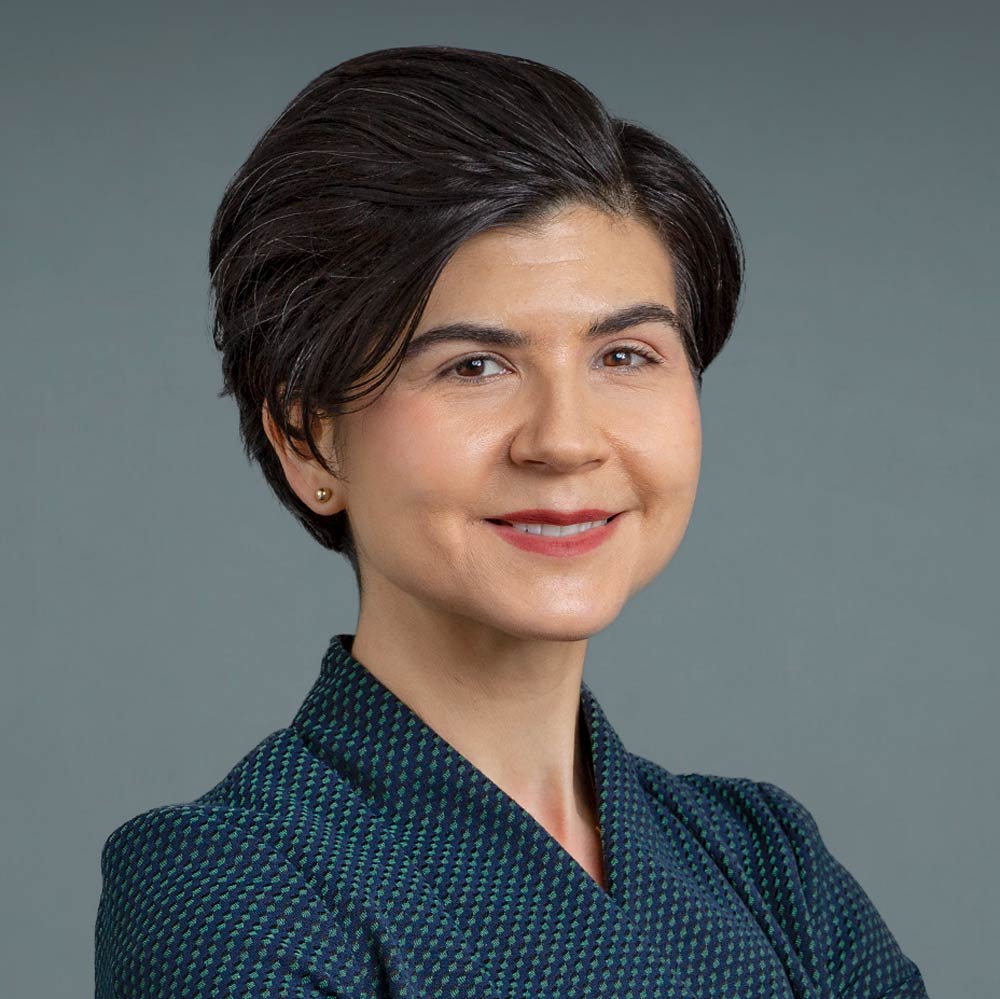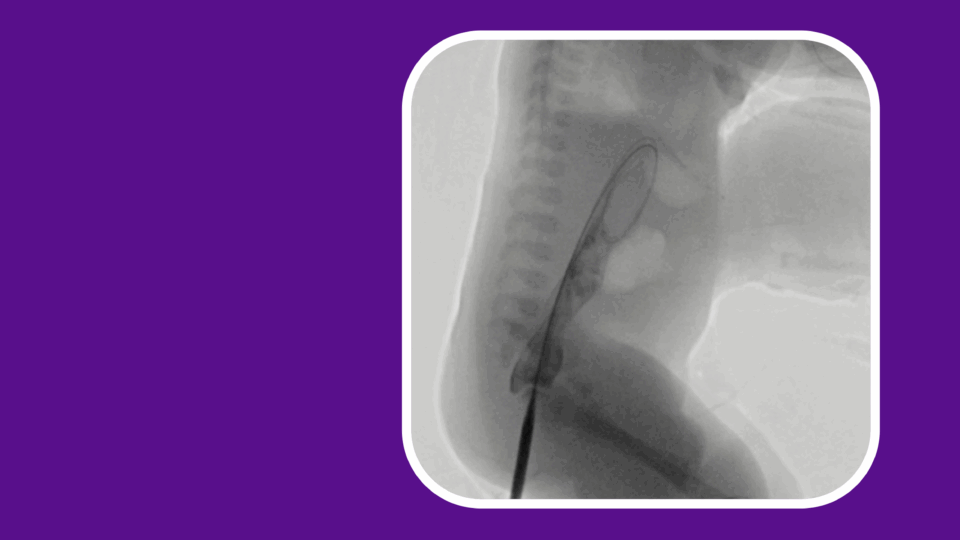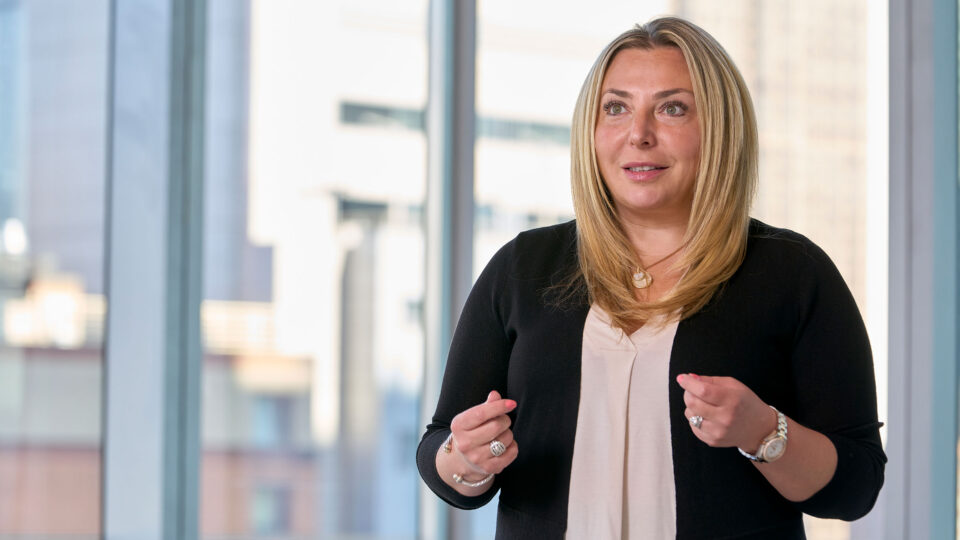When a patient with cerebral palsy (CP) comes through the doors at the Center for Children, part of Hassenfeld Children’s Hospital at NYU Langone, medical director Mara Karamitopoulos, MD, focuses her attention on one thing: offering every option—from hip reconstruction to targeted rehabilitation—to help every child hit individual care goals.
“Two patients might appear clinically identical on X-rays and exams but have very different functional goals. Care absolutely has to be driven by each family,” she says.
Given that there is no single, specific treatment target, effective management of patients with CP requires close coordination of specialties—an approach to care that the Center for Children was built to provide.
The center is one of only a select few offering truly comprehensive, multidisciplinary care for CP, placing special emphasis on ensuring that social determinants don’t hurt access to high-quality care.
“We treat children and families with very high social needs, including housing and food insecurity. We work to connect them with both the best possible care in the clinic and resources in the community.”
Mara Karamitopoulos, MD
“We treat children and families with very high social needs, including housing and food insecurity,” Dr. Karamitopoulos explains. “We work to connect them with both the best possible care in the clinic and resources in the community.”
Targeting Treatment Toward Functional Outcomes
From referral—often directly from NYU Langone’s Neonatal Intensive Care Unit (NICU) at Tisch Hospital—through transition to early adulthood, the program aligns orthopedic surgeons like Dr. Karamitopoulos with neurologists, pulmonologists, gastroenterologists, therapists from Rusk Rehabilitation, and other specialists to meet the evolving needs of each patient.
Though the nature of CP limits the possibility of measuring outcomes with specific indicators, the comprehensive care approach results in higher patient satisfaction because it enables children to participate more fully in their daily lives. Goals communicated by patients and families encompass everything from a child seeking greater agility to kick a soccer ball, to caregivers needing an easier time working with children’s tight muscles to get them dressed.
“Unfortunately, we can’t take away the underlying condition,” explains Dr. Karamitopoulos. “Instead, we ask how we can make life easier for each impacted child and family, to help that child meet their potential.”
Data-Driven Surgical Expertise
Surgical decision-making is at the center of the care plan. Though hip dislocation is common in patients with CP, hip reconstruction was not commonly recommended until recently. Dr. Karamitopoulos and her team apply a treatment algorithm to recommend reconstruction only when a patient’s hip is more than 50 percent displaced from the socket.
“The thinking used to be that it’s better to leave the hips dislocated until the patient has pain,” Dr. Karamitopoulos explains. “We have the resources here to safely intervene sooner and hopefully mitigate the tightness and pain driven by the dislocation for certain patients.”
Highly specialized care is also available for patients with severe spasticity, who may benefit from neurosurgery or treatment with the muscle relaxant baclofen, administered through the spine at a specialized clinic within the center.
Overcoming Social Barriers with Coordinated Care
In addition to supporting patients’ functional outcomes, the coordinated care model makes accessing care as convenient as possible for both patients and caregivers. With appointments streamlined, patients can see most specialists and therapists at the center within a single day, minimizing the burden that accessing care can place on work status and family needs.
The center also assigns each family a social worker, who not only supports their social and emotional needs but also helps them manage the realities of life with CP—from housing, transportation, and social activities to navigating accessibility within the New York City Public Schools. Part of Dr. Karamitopoulos’s research has focused on social determinants impacting access to high-quality CP care, particularly among non-English-speaking populations, finding that pairing families with supports can minimize care disparities.
“With early diagnosis, parents better understand what to expect, and patients have a better chance of meeting their true potential.”
Providing every patient who has CP with equal access to the best possible care, as early as possible, is a mission Dr. Karamitopoulos and her center colleagues are dedicated to achieving. To address known disparities in time to diagnosis due to social determinants, she is working with physical therapists at Rusk Rehabilitation to implement universal CP screening for all premature infants in the NICU.
Using a screening tool with infants as young as 6 weeks of age, Dr. Karamitopoulos says the team can predict with 85 to 90 percent sensitivity which babies will ultimately develop CP.
“The sooner we can diagnose patients, the more we can use therapeutic interventions to take advantage of early brain neuroplasticity,” says Dr. Karamitopoulos. “With early diagnosis, parents better understand what to expect, and patients have a better chance of meeting their true potential.”






